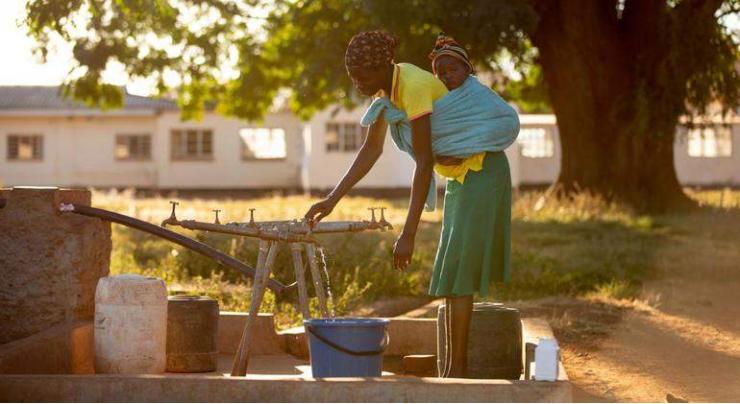
- Home
- World
- News
- Lifting 100 million out of poverty by 2025 still possible, despite recession threat: UN
Lifting 100 Million Out Of Poverty By 2025 Still Possible, Despite Recession Threat: UN
Umer Jamshaid Published October 18, 2022 | 09:47 PM

A new UN poverty study released on Monday, the International Day for the Eradication of Poverty, finds that significant poverty reduction is possible, and new ways of calculating the problem can help humanitarians and governments better target aid
UNITED NATIONS, (APP - UrduPoint / Pakistan Point News - 18th Oct, 2022 ) :A new UN poverty study released on Monday, the International Day for the Eradication of Poverty, finds that significant poverty reduction is possible, and new ways of calculating the problem can help humanitarians and governments better target aid.
The Multidimensional Poverty Index (MPI), a joint analysis from the UN Development Programme (UNDP) and the Oxford Poverty and Human Development Initiative (OPHI) at the University of Oxford, goes beyond measuring poverty as a measurement of poverty, and looks at other indicators, from access to education and health, to living standards such as housing, drinking water, sanitation and electricity.
Using this way of calculating the issue, the study shows that even before the COVID-19 pandemic and the current cost-of-living crisis are accounted for, some 1.2 billion people in 111 developing countries are living in acute multidimensional poverty - nearly double the number who are seen as poor when poverty is defined as living on less than $1.90 per day.
Because there are different aspects of poverty in different regions, the study calls for the development of strategies that tackle the issue to be tailored to specific countries and regions.
It also identifies recurring patterns of poverty ("deprivation bundles"), that commonly affect those at risk. For example, more than half of those living in poverty lack both electricity and clean cooking fuel, whilst a third are deprived of nutrition, cooking fuel, sanitation and housing at the same time.
The report showcases success stories from countries that have used integrated poverty reduction strategies: Nepal's investment in sanitation, for example, has improved access to drinking water, child nutrition, and, through a reduction in diarrhoea and child mortality.
Reacting to the findings, Achim Steiner, the head of UNDP, said at a time when government budgets were being squeezed, cutting-edge data and analytics could pinpoint the areas where spending would have the most impact.
For example, the report showed, he said, "that decarbonization and expanding access to clean energies will advance climate action, and is also critical for nearly 600 million multidimensionally poor people who still lack access to electricity and clean cooking fuel." The study, he continued, would be "vital to inform UNDP's efforts across the globe as we work with our partners from the United Nations and beyond to reach our bold objective of helping lift 100 million people out of multidimensional poverty by the year 2025".
In his message marking the Day, the UN Secretary-General, Antonio Guterres warned that the goal of eradicating poverty was being undermined, and "the world is moving backwards".
The UN chief declared that the COVID-19 pandemic set back more than four years of progress, and also cited widening inequality, the "gathering shadow" of a global recession, and the climate crisis as reasons for the faltering efforts.
Guterres said the theme for the current year's Day "Dignity for all in practice" must be a rallying cry for urgent global action, to finally "consign poverty to the pages of history".
Related Topics
Recent Stories

Serial winner Kroos eyes two-trophy finish to career

10 bodies found in Mexico's Acapulco, some in street

Djokovic backs Nadal for French Open title

BUITEMS VC calls for funds allocation for varsities

Nine child workers die in Egypt as bus plunges into the Nile

Govt taking various measures to promote sports: Senator

China warns Taiwan of reprisals over Lai inauguration speech

DPM Dar, Kyrgyz FM discuss recent incidents of violence against Pakistanis

UN health agency chief calls for end to recent Israeli siege of Gaza Hospital

BISE Hyderabad announces results of oriental languages examination

Starc helps Kolkata thrash Hyderabad to reach IPL final

Sindh edu dept launches school enrollment campaign
More Stories From World
-
Children are stars of London's Chelsea Flower Show
1 hour ago -

10 bodies found in Mexico's Acapulco, some in street
1 hour ago -

Nine child workers die in Egypt as bus plunges into the Nile
1 hour ago -

China warns Taiwan of reprisals over Lai inauguration speech
1 hour ago -

UN health agency chief calls for end to recent Israeli siege of Gaza Hospital
1 hour ago -

One dead, 71 injured as London-Singapore flight hits severe turbulence
3 hours ago
-

DPM Dar visits Bishkek National Hospital; meets Kyrgyz authorities
3 hours ago -

Small island states win 'historic' climate case at UN court
2 hours ago -

Pakistani handicraft products attract large crowd at 33rd Harbin Fair
2 hours ago -

China's top diplomat urges SCO members to maintain strategic autonomy
2 hours ago -

Diplomatic crisis deepens as Spain pulls out Argentina envoy
2 hours ago -

Schools, factories closed after quake 'swarm' near Naples
2 hours ago










